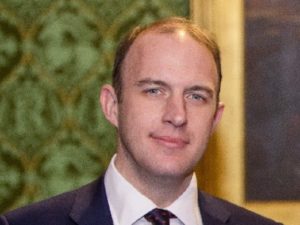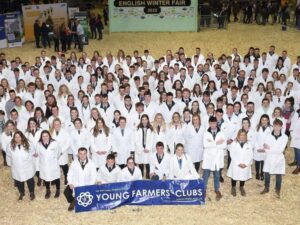The exclusion of a huge proportion of the rural economy from the new super deduction capital allowance is perverse and discriminatory, according to the Central Association of Agricultural Valuers (CAAV).
The 130% super deduction capital allowance announced in the Spring Budget is limited to companies, excluding a substantial part of the economy, says Jeremy Moody, secretary and adviser to the CAAV. “At a time when the economy needs more support to invest than ever before, the exclusion of partnerships and sole traders from the super deduction relief is limiting productivity in the rural and agricultural sectors in which these business structures dominate.
“UK agricultural total factor productivity (efficiency of turning £ of inputs into £ of outputs) has only increased at a rate of 0.9% a year since 1964, and by a still lower 0.7% a year since 2000: This needs serious remedying,” stresses Mr Moody. “Now we are outside of the EU and CAP and have more control over our own policy, taking action should be easier. But instead, this exclusion is perceived as a direct and conscious discrimination against all unincorporated businesses by the Government – hindering investment and productivity.”
This is further highlighted by the Help to Grow Digital scheme – also announced in the Budget – which requires a company registration number for a business to express an interest.
Rural and agricultural businesses are often family-run and very few are incorporated. “The Chancellor said: ‘We need to do even more to encourage businesses to invest right now,’ but the exclusion of a significant proportion of rural businesses seems both perverse and discriminatory – and in contrast to his statement,” says Mr Moody. “Investment by partnerships and sole traders is just as wanted and just as valid.”
There hasn’t been a clear reason given for companies being favoured over other businesses, he explains. “The Government has argued that it’s common for capital allowances to be limited to companies. However, the enhanced capital allowances recently abolished for energy and water investments were not limited to companies and the remaining enhanced allowance for electric vehicle charging points is available under both Income Tax and Corporation Tax.”
Though companies are facing a rise in Corporation Tax from April 2023, the tax expected from Income Tax and other personal taxes will also increase due to their thresholds being frozen – resulting in an extra £9bn in tax revenue by 2025/26, explains Mr Moody. “The latter will all be taxes on unincorporated businesses as well.”
The Government has highlighted that all businesses are eligible to claim the highest ever annual investment allowance (AIA) of £1m until the end of 2021 – however, less than two months’ notice was given that it was not falling dramatically to £200,000. “The problem is that businesses are not being provided with the necessary time to plan their investments with confidence,” says Mr Moody. “AIA has an unstable history of being altered at short notice, swinging between £25,000 and £1m.
“The fact that the super deduction will be available for two full years gives greater security for companies planning expenditure. But this still leaves unincorporated businesses without investment confidence,” adds Mr Moody.
“There is no valid ground for companies being granted the super deduction and other businesses being excluded.”
For more information visit www.caav.org.uk.





